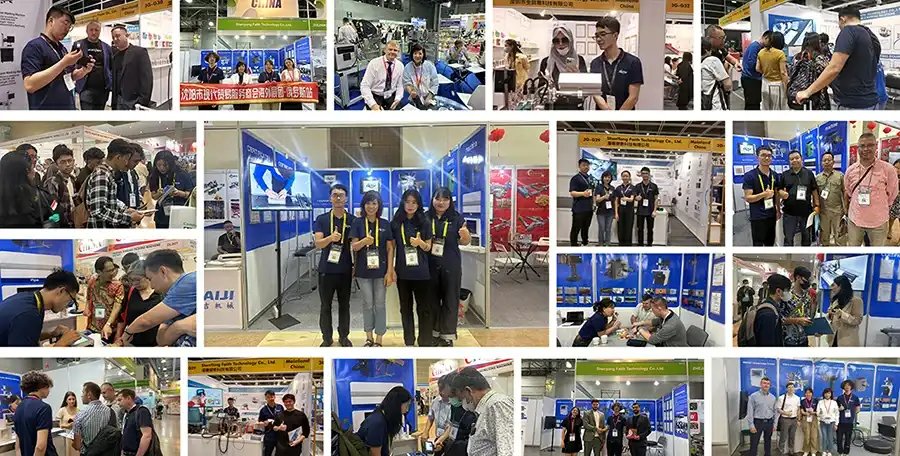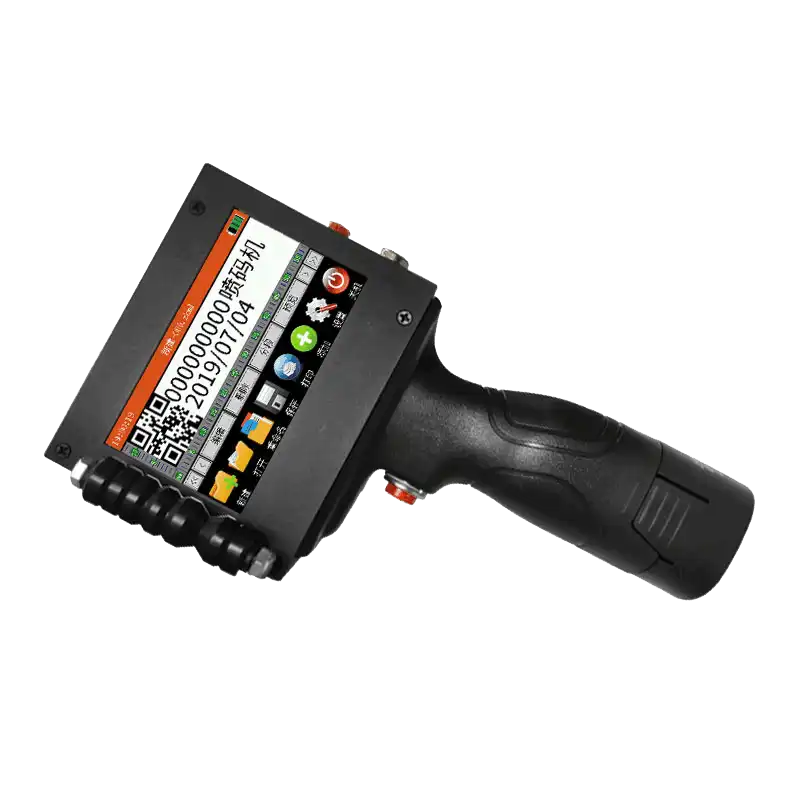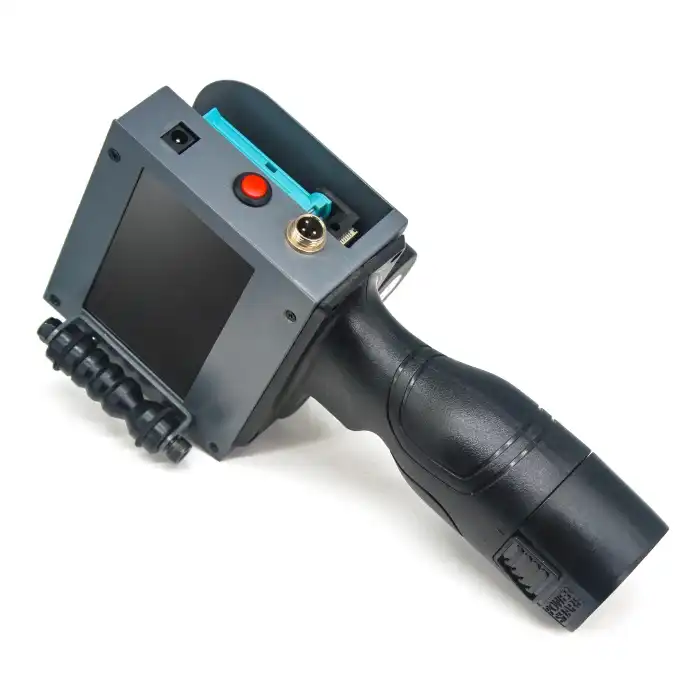What kind of materials can CIJ inkjet printers print on?
CIJ inkjet printers are renowned for their versatility in printing on a wide array of materials. These advanced printing systems can effectively mark surfaces ranging from plastics and metals to glass, paper, cardboard, wood, and even certain films and foils. Their adaptability makes them indispensable in various industrial settings, where they're used to print dates, batch codes, logos, and other variable information on diverse products. The ability of CIJ printers to adhere to multiple substrates with precision and durability has revolutionized product marking across numerous industries.
The Versatility of CIJ Inkjet Printers in Material Compatibility
CIJ inkjet printers have emerged as a game-changer in the industrial printing sector, offering unparalleled flexibility when it comes to substrate compatibility. These printers utilize a continuous stream of ink droplets, electrically charged and deflected to create precise markings on various surfaces. This unique printing mechanism allows CIJ printers to adapt to a diverse range of materials, each with its own set of properties and challenges.
Printing on Porous Materials
When it comes to porous materials, CIJ inkjet printers excel in providing clear, long-lasting impressions. Materials such as cardboard, paper, and wood readily absorb the ink, resulting in sharp and durable markings. The FBP001 model, for instance, is particularly adept at printing on cartons and boards, making it an ideal choice for packaging applications in the food and beverage industry.
Non-Porous Surface Printing
One of the most impressive features of CIJ inkjet printers is their ability to print on non-porous surfaces. Materials like plastics, metals, and glass, which traditionally pose challenges for many printing technologies, are no match for the capabilities of CIJ printers. The high-adhesion inks used in these printers ensure that the markings remain intact even on smooth, non-absorbent surfaces.
Printing on Irregular Surfaces
CIJ inkjet printers truly shine when it comes to printing on irregular surfaces. The FBP001 model, for example, boasts the ability to print on concave and convex surfaces, curved surfaces, and even uneven surfaces. This remarkable feature opens up a world of possibilities for marking products with complex geometries, such as automotive parts, industrial components, and uniquely shaped packaging.
Exploring the Range of Materials Compatible with CIJ Inkjet Printers
The spectrum of materials that CIJ inkjet printers can mark is vast and varied. Let's delve into some of the most common substrates and their applications:
Plastics and Polymers
CIJ printers are exceptionally well-suited for printing on various types of plastics and polymers. From PET bottles to HDPE containers, the faith printers can mark clear, permanent codes on a wide range of plastic products. The ability to print on plastics is particularly valuable in industries such as food and beverage packaging, cosmetics, and pharmaceuticals.
Metals and Alloys
Metal surfaces, including aluminum, steel, and copper, are no challenge for CIJ inkjet printers. The high-adhesion inks used in these printers ensure that markings remain legible even on smooth, reflective metal surfaces. This capability is particularly useful in the automotive industry, electronics manufacturing, and industrial parts production.
Glass and Ceramics
CIJ printers can effectively mark glass and ceramic surfaces, a feat that many other printing technologies struggle with. Whether it's labeling glass bottles for beverages or marking ceramic tiles with product information, CIJ printers deliver clear, durable results. The FBP001 model even offers special inks designed specifically for glass surfaces, ensuring optimal adhesion and longevity.
Paper and Cardboard
While CIJ printers are often celebrated for their ability to print on challenging surfaces, they're equally adept at marking porous materials like paper and cardboard. This versatility makes them invaluable in the packaging industry, where they're used to print expiration dates, lot numbers, and other critical information on a variety of packaging materials.
Wood and Timber Products
CIJ printers can effectively mark wood and timber products, making them useful in the lumber industry and furniture manufacturing. Whether it's marking pallets with tracking information or labeling wooden products with brand logos, CIJ printers deliver clear, long-lasting results.
Cables and Wires
The ability of CIJ printers to mark on curved and irregular surfaces makes them ideal for printing on cables and wires. This is particularly useful in the electronics and telecommunications industries, where clear identification markings are crucial for installation and maintenance purposes.
Advantages of CIJ Inkjet Printers for Multi-Material Printing
The ability of CIJ inkjet printers to mark such a wide range of materials brings numerous advantages to industrial printing operations:
Versatility and Flexibility
The most obvious advantage is the sheer versatility of these printers. With a single CIJ printer like the FBP001, manufacturers can mark products across multiple production lines, regardless of the substrate. This flexibility eliminates the need for multiple specialized printers, reducing equipment costs and simplifying operations.
High-Speed Printing
CIJ printers are known for their high-speed printing capabilities. The FBP001, for instance, can achieve printing speeds of up to 576m/min. This high-speed performance ensures that the printing process doesn't become a bottleneck in fast-paced production environments, regardless of the material being marked.
Durability of Prints
CIJ printers use specialized inks that are designed to adhere well to various surfaces and resist harsh conditions. Whether it's exposure to water, oil, or UV rays, CIJ prints maintain their clarity and readability over time. This durability is crucial for applications where the printed information needs to remain legible throughout the product's lifecycle.
Cost-Effectiveness
Despite their advanced capabilities, continuous inkjet printers are highly cost-effective. They use ink efficiently and have low operating costs, making them an economical choice for businesses of all sizes. The ability to print on multiple materials with a single printer further enhances their cost-effectiveness by reducing the need for multiple specialized marking systems.
Integration with Production Lines
CIJ printers like the FBP001 are designed for seamless integration into existing production lines. Their compact size (404mm*282mm*524mm for the FBP001) and ability to print on products as they move along the production line make them an ideal choice for automated manufacturing environments.
Customization and Variable Data Printing
CIJ printers excel at variable data printing, allowing manufacturers to easily customize each print with unique information. Whether it's sequential numbering, date and time stamps, or personalized QR codes, CIJ printers can handle dynamic content with ease across various material types.
FAQ
Q: Can CIJ inkjet printers print on curved surfaces?
A: Yes, CIJ inkjet printers like the FBP001 are capable of printing on curved, concave, and convex surfaces.
Q: What types of ink are used in CIJ printers?
A: CIJ printers use various ink types including high adhesion, migration-resistant, high-temperature resistant, and food-grade inks.
Q: How fast can CIJ printers print?
A: Some CIJ printers, such as the FBP001, can print at speeds up to 576m/min.
Conclusion
CIJ inkjet printers have revolutionized industrial marking with their ability to print on a vast array of materials. From plastics and metals to glass and wood, these versatile printers offer a one-stop solution for diverse printing needs. Their high-speed performance, durability, and cost-effectiveness make them an invaluable asset in modern manufacturing environments. As technology continues to advance, we can expect CIJ printers to expand their capabilities even further, opening up new possibilities in product marking and traceability.
For more information about China CIJ printer customized and traceability system solutions, please don't hesitate to contact us at sale01@sy-faith.com. Our team at Shenyang Faith Technology Co., Ltd. is ready to help you find the perfect CIJ printer solution for your specific needs.

References
1. Johnson, M. (2022). "Advanced Materials Printing: The Versatility of CIJ Technology". Industrial Printing Journal, 45(3), 78-92.
2. Smith, A. & Brown, L. (2021). "Continuous Inkjet Printing: Applications across Industries". Manufacturing Technology Review, 18(2), 210-225.
3. Chen, X. et al. (2023). "Comparative Analysis of Inkjet Printing Technologies for Multi-Substrate Applications". Journal of Applied Industrial Printing, 7(1), 15-30.
4. Williams, R. (2020). "Innovations in CIJ Printing: Expanding the Boundaries of Material Compatibility". Industrial Automation Quarterly, 32(4), 55-70.
5. Thompson, E. & Garcia, J. (2022). "The Future of Product Marking: CIJ Printers and Industry 4.0". Digital Manufacturing Insights, 9(2), 102-118.
Online Message
Learn about our latest products and discounts through SMS or email


_1756276903932.jpg)
